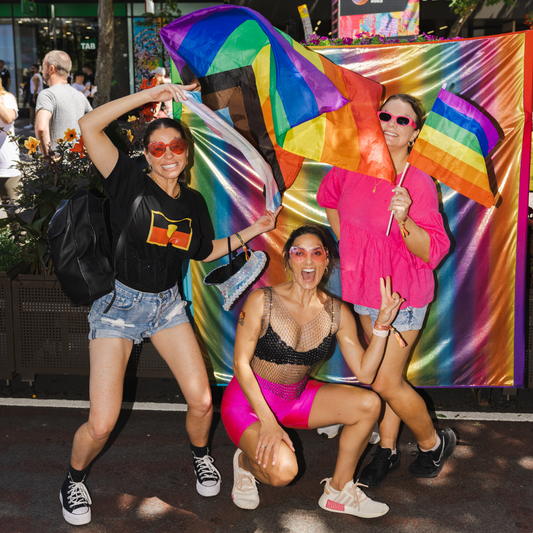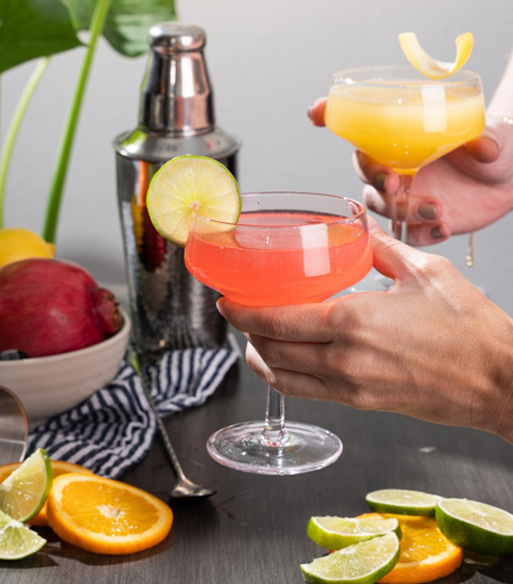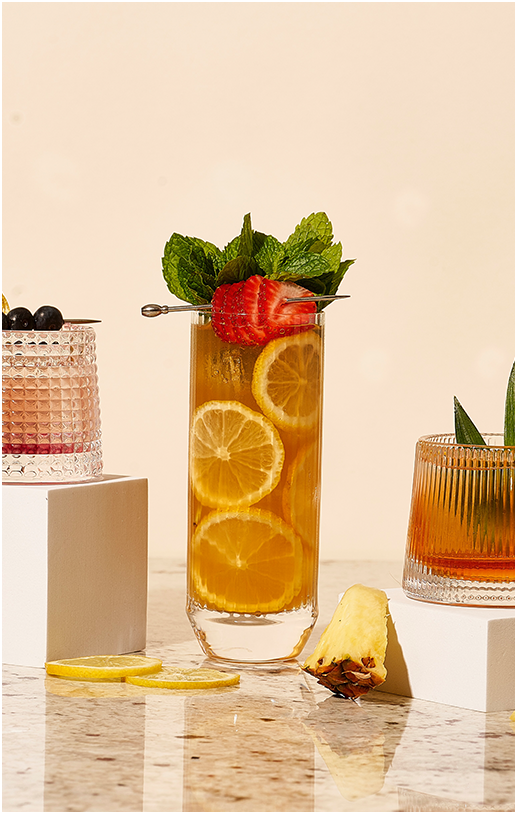Craft cocktails have begun playing an increasingly significant role in neighborhood pubs and local restaurants. While ordering a dry martini at the corner bar may have once been met with stares of disdain, you’re now much more likely to be asked, “Do you have a preference of gins, and would you like that dirty?” There’s a reason why you can now get an incredible cocktail at places that used to only sling draft beers and simple mixed drinks, like gin and tonics, rum and cokes, etc. To enhance the overall drinking experience, drive up demand, and increase tips, a more significant number of bartenders have become mixologists.
What is Mixology?
Mixology is a skill-based art form that involves extensive knowledge of liquor types and brands, mixers, and other ingredients, along with bartending craft. Mixology requires training and practice, and all mixologists have hours and hours behind the bar making drinks. While all mixologists are bartenders, not all bartenders are mixologists. No regulatory agency designates which bartenders can consider themselves mixologists and which ones can’t, but there are a few routes to being able to claim the title “mixologist.” One is to attend a bartending school that emphasizes cocktail creation. Another is to apprentice with a seasoned mixologist.
The Difference Between a Bartender and a Mixologist
Tending bar is a time-honored profession, and many bartenders are perfectly capable of preparing even complicated cocktails. With very few exceptions, most mixologists started as bartenders, but several differences exist.
Mixologist
A mixologist may be tasked with creating a drink menu, designing signature cocktails, deciding which liquor brands and ingredients they should stock, and even what type of glassware the bar should have. While they can always tend bar, they have enhanced responsibilities. The mixologist may be held in reserve to prepare more complicated cocktails if other bartenders are working.
Bartenders
These service-industry workers also have a high level of skill and must be able to make all of the most popular bar drinks. Bartenders have to prepare multiple drinks, accept payment, and take drink orders. They may prepare drinks for the wait staff serving guests on the restaurant or bar floor. Bartenders are usually not required to invent new cocktails or to prepare drink menus.
Sourced Craft Cocktails has the highest respect for anyone who serves on the front lines of the service industry. In fact, many of our employees are bartenders and mixologists who want to earn extra cash when they’re off shift. Without these dedicated employees, Sourced couldn’t exist.
Bartender/Mixologist Definitions
The following is a glossary of terms that bartenders and servers have to know to survive in the industry. This is by no means a comprehensive list, and most of these definitions apply specifically to cocktails.
- Double – Two ounces of liquor or a drink made with double the liquor. It can also refer to a double-sized drink.
- Dust – A garnishing technique where a powdered ingredient like cinnamon, cocoa, or nutmeg is sprinkled over the top of the drink. Common with frothy drinks.
- Free Pouring – Pouring without a jigger. This is not recommended when preparing cocktails except for when the recipe only calls for a small amount of the ingredient (i.e., a dash of bitters.
- Frosting – This refers to making glassware cold by icing it or storing it in the freezer.
- Jigger – A measuring tool that bartenders use to pour fluid ounces and portions of ounces.
- Layering – Pouring ingredients over a bar spoon to create multiple layers of the ingredient within the drink.
- Muddling – Crushing fruit with a muddler to allow their juices to mix with the cocktail.
- Neat – Liquor without ice, water, or other additives.
- Rimming – This involves rubbing a lime around the rim of a glass and then lining the rim with salt or sugar.
- Shake – This involves using a cocktail shaker to mix the drinks. Most recipes that require shaking call for ice, which can slightly water down the cocktail. When frothiness is required, drinks are usually shaken.
- Smoked – A process where wood is smoked under a dome with the cocktail to retain the smokey flavor.
- Stir – Cocktails with more delicate ingredients should be stirred with a bar spoon in a mixing glass. Some recipes will call for ice to be in the mixing glass, while others suggest you pour the drink over the ice. Clear liquor drinks should almost always be stirred.
Why Does Quality Matter?
It might seem like an obvious point to say that you should only use quality ingredients when making drinks, but what does that actually mean when you’re combining several ingredients to make a cocktail. For instance, if you use a quality liquor base, can you combine it with a lesser quality garnish and still have a great-tasting cocktail? Professional mixologists would argue that any compromise on quality will be noticeable in the final product. For this reason, professional mixologists may differ on their opinions about which brand of vodka makes for the best Moscow Mule, for instance, but they will never substitute what they feel is an inferior product. This applies to alcohol, juices, syrups, garnishes, and even glassware.
Steps for Crafting a Great Drink
Every cocktail recipe has its own unique process, but these steps will ensure that your cocktails have a professional taste and presentation.
- Use the right glassware for the drink — martinis in a martini glass, old fashioneds in a lowball, etc.
- Prepare your bar tools in advance: chigger, shaker, strainer, mixing glass, and bar spoon. Wash them between each new cocktail to avoid contaminating the next drink.
- Prepare your ingredients: liquor, mixers, syrups, fruits, garnishes, etc.
- Follow the recipe, including the order of the steps. Some cocktails require you to add ingredients in a specific order. Don’t change them up.
- Avoid free-pouring. Even the most practiced mixologists use jiggers.
- Don’t shake when you should stir and vice versa.
- Focus on your presentation. The way your cocktail looks is part of the experience.
Practice makes perfect. Developing any new skill requires repetition. Don’t get frustrated if your first drink isn’t amazing. Review your steps and try again.
Sourced Craft Cocktails and Mixology
You don’t have to become a mixologist to have delicious craft cocktails in your home. Sourced Craft Cocktails has three great ways that you can order cocktail-making kits and have them delivered to your home:
Shop Our Classic Cocktails – One of our mixologist delivery staff will deliver a handsome European tote to you personally containing liquor, mixers, a jigger, our reusable branded cups, and the instructions for making your cocktail — everything you need to make six to eight world-class cocktails.
Signature Cocktails – Some cocktails are timeless classics. At Sourced Craft Cocktails, we develop some pretty amazing concoctions, but here's where you'll find the legends. You're sure to find a cocktail with your favorite spirit. Also, check out the On Tap option for many of these world-class drinks.
Entertainment and Gift Packages – Our entertainment and gift packages are appropriate for all occasions: birthdays, holidays, promotions, bridal parties, housewarmings, and more. If you're looking for a unique present that will not be duplicated by another benefactor, we have a gift package for you.
Sourced Craft Cocktails is a company founded by mixologists. You can taste our combined decades of experience in every cocktail. Order Sourced cocktail delivery today!
 Delivery to:
Delivery to: 









